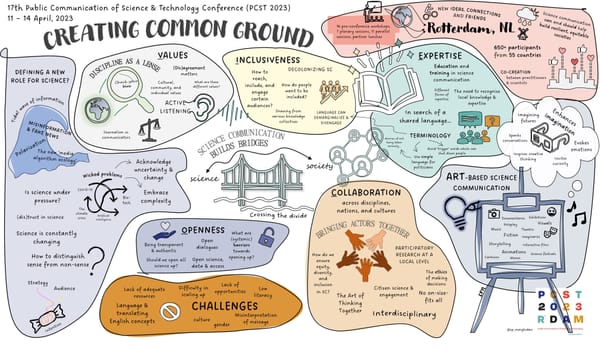"If you can talk, you can communicate"
Members of the association SciComNL have expressed what they consider important for the National Centre for Science Communication that is to be established. Especially knowledge development and knowledge sharing are, in my opinion, essential functions of such a body.

What a great wish list it has become, SciComNL's survey of its members on what people think about the functions of the National Science Communication Centre. All important points. As far as I am concerned, number 2, stimulate open knowledge development and knowledge sharing within science communication, is the core and should actually be in first place (with the current number 1 falling under 2, because that knowledge should be shared with the full breadth of the field).
Above all, providing training should be an important function of the national centre. Because where much can be gained is in strengthening the professionalism of practitioners of science communication. Sometimes the thinking seems to be that if you can talk, you can communicate. But communication is a science, with models and theory and tools that can ensure that your interventions have the impact you have defined as your goal. Without that basic knowledge, you are not only less effective, but can even do harm (think of the 'deficit model' thinking that is still widespread).
There is so much interesting to learn about the profession. Communicating should be less about sending information. It should primarily be about making an impact with the desired target group, for instance through behavioural influence. And communication is above all about listening. Listening to learn (as Hilke van Bergen nicely put it in the podcast of Van der Hilst Communicatie).
Talking about knowledge development, there is of course a lot of research on science communication and it is difficult to keep track of this new knowledge. Therefore a tip. If you are proficient in German or know how to use a translation service, the Wissenschaftskommunikation website has a blog every month with summaries of scicomm research relevant to practice (the blogs are called Kurz vorgestellt). Thanks to the colleagues at our great example Wissenschaft im Dialog.




